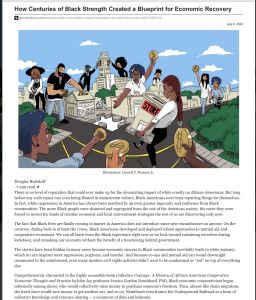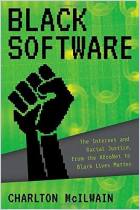Acesse a sua conta getAbstract para obter o resumo!

Acesse a sua conta getAbstract para obter o resumo!
Douglas Rushkoff
How Centuries of Black Strength Created a Blueprint for Economic Recovery
Black communities have for centuries harbored a spirit of support and mutual aid. It’s time the rest of the country followed their lead.
Medium, 2020
Sobre o que é?
The Underground Railroad gave the enslaved freedom and money. That network offers modern fiscal lessons.
Recommendation
The Underground Railroad was a network of freedom for those escaping enslavement in the 1800s. Lesser-known networks delivered financial assistance and vital information to enslaved people. After emancipation, community-based financial cooperatives provided economic support to Black Americans facing discrimination and segregation. Their inability to gain broad access to the US financial system yielded dividends that provide benefits today to Black Lives Matters protestors and other members of the Black community. Douglas Rushkoff’s article on Medium provides eye-opening information about mutual aid organizations and communal self-reliance.
Summary
About the Author
Writer and columnist Douglas Rushkoff authored Team Human and Throwing Rocks at the Google Bus, and hosts the Team Human podcast.





















Comment on this summary